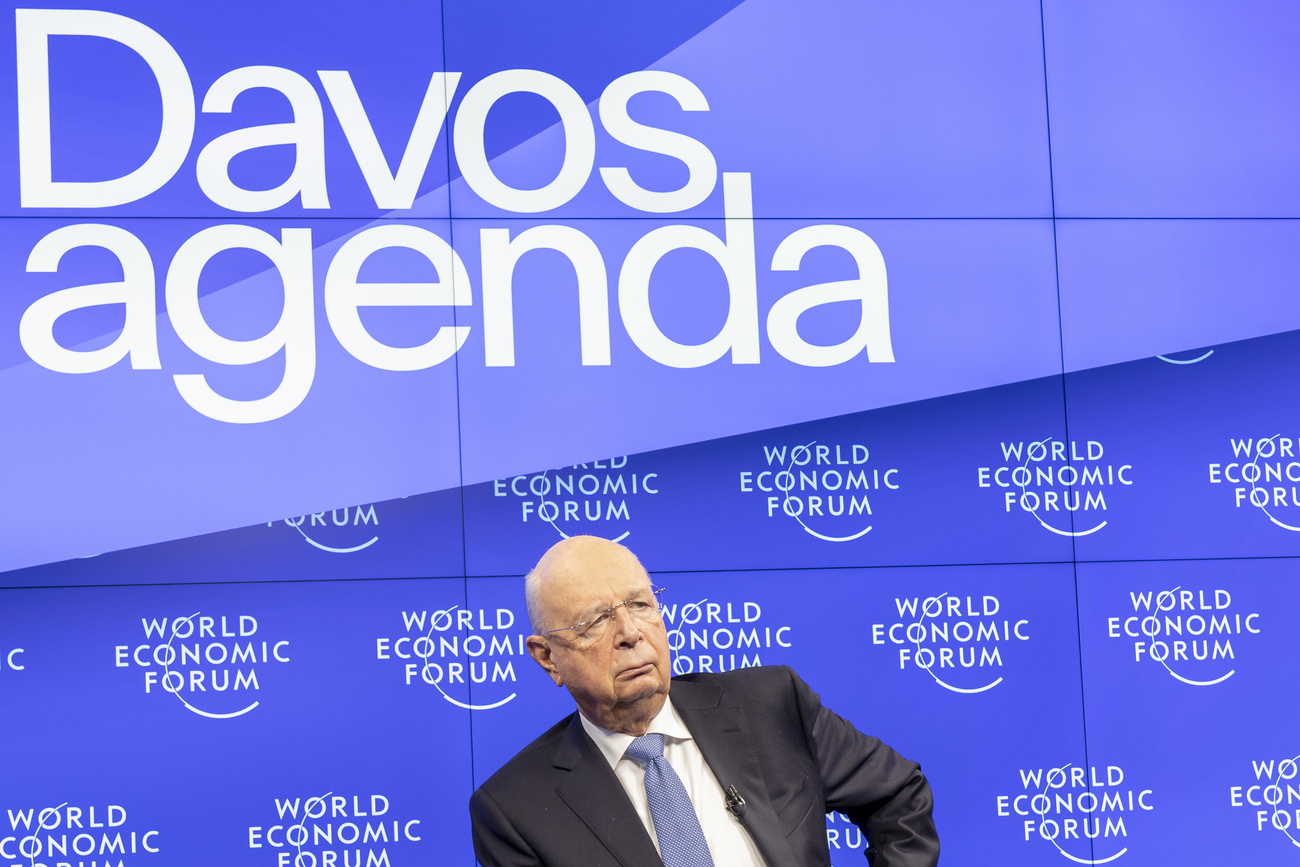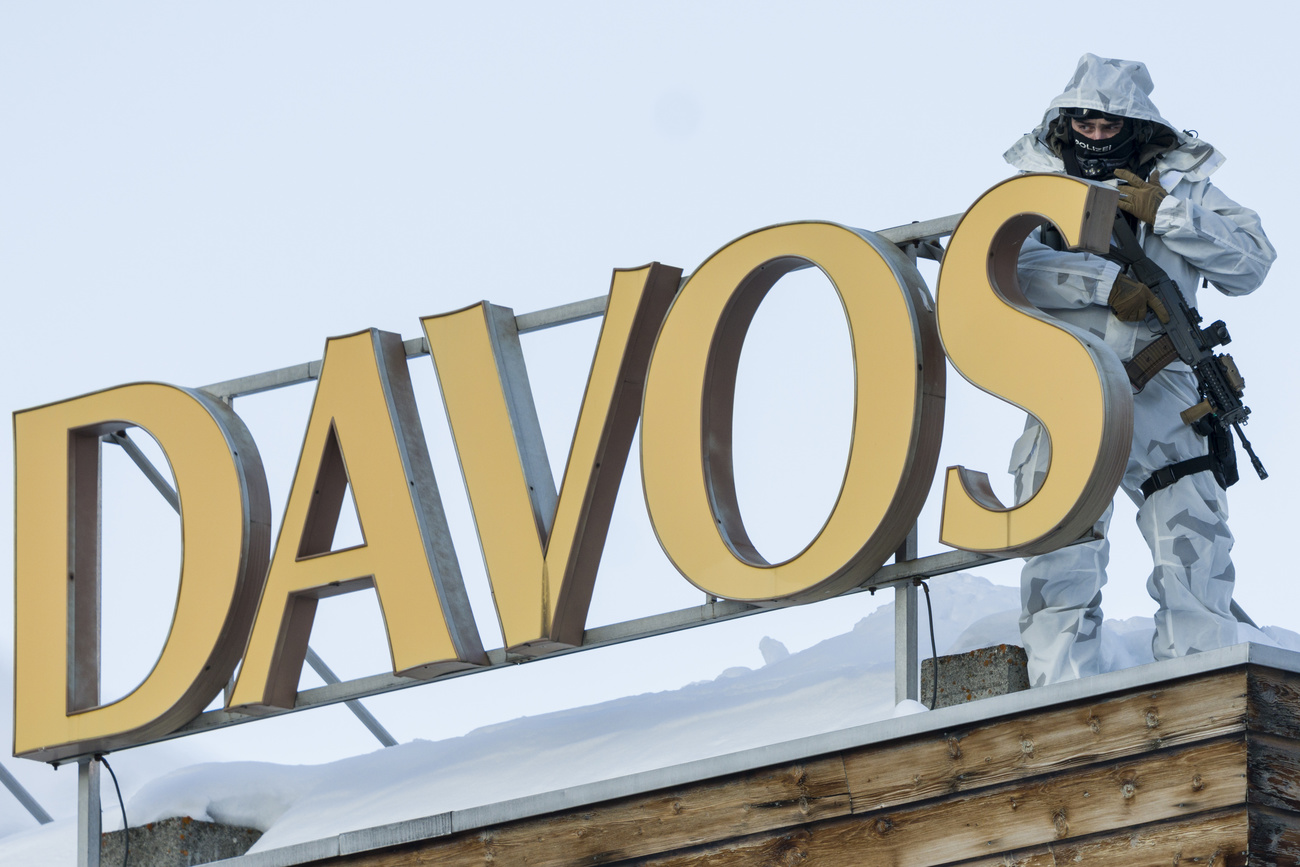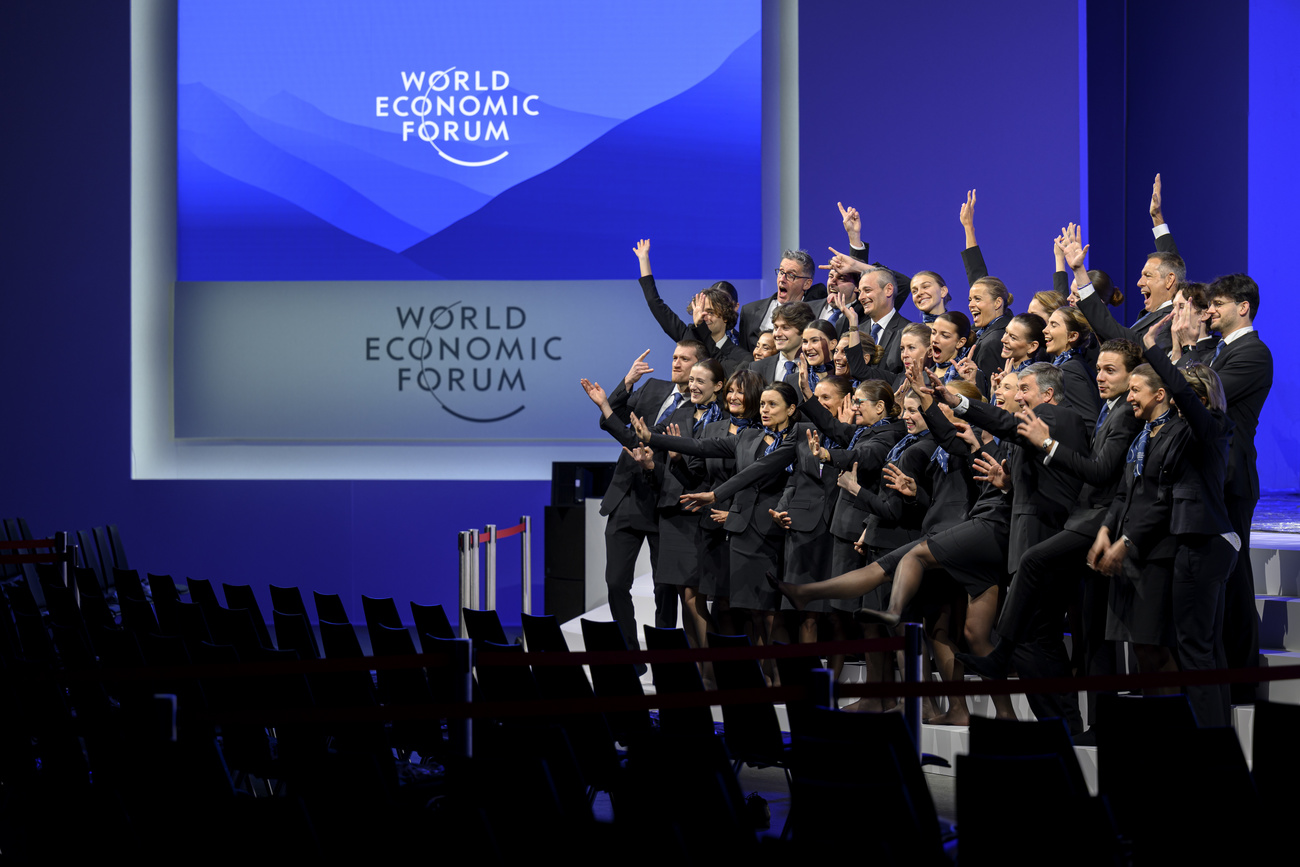
The Davos set in decline: can the World Economic Forum save itself?

Battered by scandal, the Swiss organisation behind the annual summit faces a moment of crisis. Insiders say its future may depend on the success of next year’s meeting.
In early August, a confidential 37-page report was presented to the World Economic Forum’s board of trustees. It was the culmination of a sweeping months-long inquiry that had gripped one of the most visible institutions in the world of international policy and business – and centred on the man who built it.
Investigators led by Swiss law firm Homburger had scoured more than 100,000 emails, reviewed 65,000 further documents and questioned 59 current and former staff in 86 interviews, according to the report.

The intent was to determine whether Klaus Schwab, the forum’s 87-year-old founder, and his wife, Hilde, had turned the WEF into not only a private fiefdom but also a personal cash machine.
The conclusion was unequivocal: no criminal misconduct was substantiated. There had been irregularities – expenses without clear business justification, blurred lines between personal and professional spending, awkward emails, poor people management – but nothing that crossed into illegality.
For Schwab, the findings were meant as vindication. In the same week, at a tense meeting of the board – which included European Central Bank president Christine Lagarde, BlackRock chief Larry Fink and other influential names – he demanded a financial settlement and a public acknowledgment that the allegations against him and his wife were false.
For some others present, however, the report confirmed a deeper problem: a pattern of unilateral decision-making and blurred governance by a founder who had long run the forum like a family business.
When the Geneva-based organisation finally issued its statement on August 15, the tone was careful. “Minor irregularities, stemming from blurred lines between personal contributions and forum operations, reflect deep commitment rather than intent of misconduct,” it said.
Fink and Roche vice-chair André Hoffmann were appointed interim co-chairs. Schwab was not granted the title of honorary chair.
The forum’s “next chapter”, the statement concluded, “will be guided by the original mission developed by Klaus Schwab: bringing together government, business and civil society to improve the state of the world”.

More
Messy Schwab succession threatens WEF image
For decades, that mission had carried immense weight. Its annual meeting in Davos has been a magnet for heads of state, tech titans and cultural figures – a neutral Alpine stage where elite consensus was forged under the banner of Swiss diplomacy. Its panels set the tone for global capitalism’s self-reflection; its corridors hummed with the energy of dealmaking and diplomacy.
Though sometimes dismissed as a talking shop, Davos has occasionally produced results beyond networking. In 1988, it hosted a thaw in Greek-Turkish tensions when the two countries signed a peace declaration on the sidelines. In the 1990s, it facilitated economic dialogue between Shimon Peres and Arab leaders following the Oslo Accords. Bill Gates used the platform in the 2000s to launch major vaccine funding initiatives.
But the world that once flocked there has changed. Davos is sailing against the wind. Multilateralism is in retreat, protectionism is on the rise, and great-power rivalry – between the US and China, between the west and the global south – is remaking global governance.
Rather than closing a chapter, the report marked the culmination of a slow, painful unravelling: not only of Schwab’s legacy but of the institution itself. Not only did it lose its founder, it also lost its influential interim chair, Nestlé chair emeritus Peter Brabeck-Letmathe, who fell out with Schwab.
Battered internally and diminished externally, the forum stands at an uncertain moment as it prepares for its next annual meeting at Davos in January 2026. Invitations went out to registered participants this week with the theme: A Spirit of Dialogue.
“The WEF may be facing its biggest challenge since it was founded in 1971. It is confronting multiple headwinds: the retreat of globalisation, widespread distrust of elites, and the abrupt transition from Klaus Schwab’s leadership,” says James Breiding, author of Swiss Made: The Untold Story Behind Switzerland’s Success.
“The next meeting isn’t just important – it may be make-or-break.”

More
How ‘Davos Man’ hijacked capitalism
In early April, Schwab told the WEF board he planned to step down after 54 years as the forum’s figurehead.
He had been under pressure, from within the board and externally, after an earlier internal investigation into the forum’s workplace culture, sparked by a Wall Street Journal exposé. The inquiry last year, ordered by the board, had found no illegal conduct but revealed widespread frustration with leadership and governance.
Schwab gave the board no date for departure, however, and shortly afterwards travelled to Frankfurt to meet Lagarde and discuss her eventual succession as chair – a move that, had it gone ahead, might have kept him in position until 2027, when her term as ECB chief ended.
Less than two weeks later, a whistleblower dossier arrived. The letter sent to the board accused Schwab of using forum resources for private luxuries: hotel massages, family travel and international trips without clear business purpose. It alleged favourable treatment for certain countries in the forum’s flagship Global Competitiveness Report and claimed Schwab intended to pocket royalties from books whose production costs had been covered by the organisation – a sum allegedly worth CHF1.5 million ($1.9 million).
There were further claims: that he had unilaterally launched a costly Metaverse project; that he and Hilde Schwab had restricted staff access to the luxury Villa Mundi retreat in Geneva bought and renovated by the WEF; and that his wife billed private travel to the organisation. Schwab was also accused of using staff to pursue a personal campaign for a Nobel Peace Prize.
“I will always wonder if that meeting with Lagarde was what set it all in motion,” says one senior WEF employee. “It seemed someone was incensed that he intended to stick around for a few more years.”
+ Get the most important news from Switzerland in your inbox
The allegations proved fatal. Schwab stepped down; the forum hired Homburger to conduct an independent investigation. Furious, the founder launched parallel legal action to clear his name – filing a criminal complaint in Geneva against unknown parties and a civil suit in June naming the forum itself as a counterparty, the FT has learned.
“This wasn’t a move against the board,” says someone familiar with the case. “It was to ensure Klaus could take his case to court for fair treatment.”
Insiders say the lawyers’ investigation was intense, but fair. “They were thorough. The process the second time around was like night and day. The first investigation I felt like I was being accused of something, the second time they assured me of anonymity and nobody could seek retribution. I, and others who I spoke to who were interviewed, felt we could be honest,” says one person who was interviewed for both probes.
When the Homburger report arrived in August, it found most of the claims, including the most serious ones, were not substantiated.
According to the report, which has not been made public but which the FT has reviewed parts of, investigators reviewed 45,000 expense line items for the Schwabs. Tax consultancy BDO found just under CHF5,000 in private costs that had been wrongly billed over 13 years – errors, it concluded, that were “not concealed”. Investigators were not able to determine if there had been more. Travel costs were steep but were found to have business justification.
Claims of sexual harassment and age discrimination were dismissed. Allegations of poor treatment of employees were also unsubstantiated, though the report flagged confusing processes and weak management.
The Global Competitiveness Report controversy was judged procedural. Schwab had pushed to update the methodology to reflect digital readiness, which would have reshuffled country rankings. India, for instance, would have dropped to 77th instead of 40th in the 2017-18 edition. Concerned the shift might appear arbitrary, he reverted to the old model but included an annex explaining the change. He also expressed fears the alterations for the UK, which had jumped from seventh to second, might be “exploited by the Brexit camp”.

More
How Swiss companies lobby in Brussels and at the WEF
The board had greenlit the Metaverse initiative – branded the “Global Collaboration Village” – and Schwab’s son Olivier had been appointed to a leadership role following a competitive process. Similarly, Villa Mundi had been acquired and renovated with board approval and Schwab’s interior designer chosen for offering below-market rates. There was no evidence access had been unfairly restricted.
Other claims – such as gifts of a Russian tea set or Tiffany cufflinks – could not be verified. The forum had no formal inventory. Investigators noted Hilde Schwab had on one occasion declined an expensive painting on propriety grounds.
None of it amounted to criminal conduct. Yet for many trustees and executives, the report confirmed a deeper issue: Schwab’s unaccountable control. He had even considered relocating the forum’s headquarters to Dubai, the Homburger report revealed – a plan ultimately abandoned but unknown to most of the board at the time.
“Klaus ran the forum like a founder runs a start-up,” says one person close to the board. “Yes, much was formally approved. But nobody kept him in check. Many trustees were there as a reward. Few were willing, or interested, in standing up to him.”
The report confirmed weak oversight and blurred boundaries between personal and institutional interests. But its failure to find criminality left the board facing an awkward dilemma. Schwab’s lawsuit and the lingering scandal were overshadowing preparations for Davos 2026.
“When the report was presented, some board members were genuinely shocked. They had expected him to be guilty – but there was nothing in it,” says one trustee. “It was obvious we had to do a deal and move on.”
Brabeck-Letmathe, the interim chair, stepped down immediately after the settlement with Schwab. In a letter to the board of trustees and the WEF chief executive, Børge Brende, he cited a toxic work environment. An early backer and longtime supporter of Schwab, he was heavily involved in the forum. The two men are no longer on speaking terms.
The settlement included a financial arrangement including a pension provision, a formal statement clearing Schwab of wrongdoing and a clear split between the founder and his organisation. Yet the decision not to release the report publicly sparked accusations of whitewashing.
“Some people called it a whitewash. It wasn’t,” says a forum employee in a management role. “Klaus could be difficult, arrogant and change his mind five times a day – but he wasn’t enriching himself. He’s not a bad person.”
Yet morale remains fragile internally. “In Latin you say, ‘Cui bono?’ I’m not sure who benefited,” says another employee. “Klaus lost, Brabeck lost, the board was divided, the forum’s reputation has taken a hit . . . If [the whistleblower’s intent] was just getting Klaus out, it feels like a pyrrhic victory.”
Schwab, for his part, feels deprived of the dignity he believes he earned, according to those close to him. He built the forum from scratch with his own money in 1971, transforming the WEF from a niche management symposium into a global institution with quasi-diplomatic clout and more than half a billion dollars in annual revenue. He may have micromanaged the forum and its premier event, they say, but he believed he was acting in the organisation’s best interests.
“He gave his life to the forum and without him it would not be what it is today,” says one person close to him. “Now there’s a sense it’s being taken away – not just the position, but the legacy.”
The irony, insiders say, is that the WEF’s internal turmoil mirrors the fate of the multilateral order it once championed.
The forum’s crisis marks the end of an era – the post-cold war period of global integration, market optimism and liberal institutionalism. That era produced Davos, and for decades Davos embodied it.
But the world of 2025 looks very different. The global economy is fragmented; climate politics shapes national agendas; new technologies are complicating how societies view the future.
The WEF’s founding premise that dialogue among elites can bridge divides feels increasingly out of step, especially as its language around “resetting” capitalism and shaping global futures has fuelled baseless claims by conspiracy theorists that it orchestrates crises to expand top-down control over ordinary people.
Rivals have filled the space. The Munich Security Conference has expanded beyond defence into broader geopolitical debate. Riyadh’s state-backed Future Investment Initiative, dubbed “Davos in the Desert”, offers a glossy alternative. China, too, promotes its own dialogues under the Belt and Road banner.
“Davos has always reflected what happened in the wider world,” says Thierry Malleret, co-author of several books with Schwab and whose next book is titled Death of Davos. “It had glory because the West was drunk on its own power – and that is finished. Multi-polarity is the future. You’ll have events in China, Riyadh, Aspen – and European Davos slowly fading into irrelevance.”
The forum’s survival now depends on whether it can reinvent itself – structurally, culturally and politically – for a world that no longer believes in elite consensus, Malleret and others say. That will demand more than new co-chairs; it will require a reckoning with its own limits, and with the backlash against the globalisation it celebrates.
The immediate test will come in January. Fink has involved himself personally and much more than some expected in ensuring the presence of American superstars, one person familiar with the planning said.
Other corporate heavyweights on the board are being pressed into action to help deliver world leaders and titans of industry to Davos, so paying attendees can see what they are buying. Brende has been travelling nonstop across Europe and Latin America recently.
Staff say the stakes are high. “There is a fear if we don’t deliver a good Davos some partners might reconsider the relationship,” says the WEF manager.
One figure in particular is high on the invitation list. “They should be aiming for Trump,” says Breiding. “He has convening power, especially with Silicon Valley.” One trustee confirmed “promising” discussions about securing the presence of the US president, who attended twice in person during his first term. “All focus is on making the next event a success,” the trustee says. “Larry Fink has the best chance of pulling that off.”
A WEF spokesperson said it had “record participation” of partners for this stage of the registration process.
Beyond Davos 2026, however, the forum faces a deeper challenge: relevance. Critics say its content has grown flat, its panels dominated by conventional wisdom. “It used to push the envelope,” says one former executive. “Now it’s politically correct and dominated by sponsors like consultants. Nobody wants to hear what Macron has to say at Davos.”
Some have suggested being open to areas Schwab was against: such as arms companies. “Defence is being recharacterised as a public good in Europe post the Russian invasion of Ukraine, and Trump. That could be one direction,” says one former WEF executive.
Others argue its value lies in what it still does best – convening and dialogue. Yet it remains to be seen what the current management is capable of. Brabeck-Letmathe had also been a key participant in board activities and matters.
“Once they get through January, the forum needs a total rethink,” says one senior manager. “But I’m not sure the current board has that mindset.”
However, even those at the most senior levels recognise something fundamental needs to change. “The WEF absolutely has a reason to exist. It is more important than ever,” says one trustee. “But it lost its way when it tried to become an ‘impact forum’. It was meant to facilitate, not to deliver outcomes itself. The forum should help others improve the state of the world – not claim to do it alone.”
Copyright The Financial Times Limited 2025

In compliance with the JTI standards
More: SWI swissinfo.ch certified by the Journalism Trust Initiative






























You can find an overview of ongoing debates with our journalists here . Please join us!
If you want to start a conversation about a topic raised in this article or want to report factual errors, email us at english@swissinfo.ch.